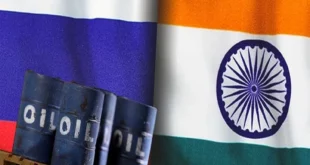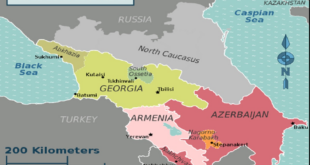India’s foreign policy is at a crossroads in Afghanistan, where past policy decisions are producing strategic, moral, and political consequences. To a large extent, India made a mistake, as many Western powers did: it put its faith and confidence in the Ashraf Ghani government, while rivals such as China and Pakistan made overtures toward the Taliban, and are now certain to advance their interests and influence over the country.
India’s losses are huge. The country has invested more than $3 billion in Afghanistan since 2001 on development and reconstruction projects, including the Salma Dam along the Iranian border and Afghanistan’s Parliament building, the latter of which was built to the tune of $90 million and was supposed to symbolize Afghanistan’s transition to democracy. These investments were recently lost as the Taliban swept into power, occupying the very seats India hoped would nurture a more democratic Afghanistan.
While land-locked Afghanistan has deep cultural and historical roots with India, there are direct and indirect security implications to consider. Pakistan, for example could exploit the corridor running from Afghanistan to the Indian line of control, facilitating cross-border terrorism in fragile Kashmir. India now has plenty to worry about. When the Taliban previously held power from 1996-2001, the regime gave free rein to a host of anti-Indian terrorist organizations within Afghanistan, including Jaish-e-Mohammed (JeM) and Lashkar-e-Taiba (LeT). Taliban safe havens allowed these organizations to regroup, train, and then wreak havoc in Indian-administered Kashmir, which bears the scars of a long-running insurgency.
The Taliban takeover also brings potential benefits for Pakistan, which could try to relocate terror camps from its western regions across the border into Afghanistan under a temporary deal. This could help Pakistan partially get out from under the scrutiny of the Financial Action Task Force (FATF), which monitors money laundering and terrorism financing. Its addition to the so-called ‘grey list’ has hurt beleaguered Pakistan’s ability to get financing from the International Monetary Fund (IMF) and other international finance mechanisms.
India’s development assistance, which was one of Afghanistan’s most significant donors over the past twenty years, is now also in serious jeopardy. Presenting India’s moral and ethical face in Kabul, New Delhi provided scholarships to Afghan students, offered food assistance, and helped restore Afghanistan’s war-ravaged power grid.
Though devastating, there could be some cause for guarded optimism surrounding the takeover, as the Taliban have invited India to continue investment in Afghanistan. The concern now is the structure of the new Taliban-led government, which will surely be leaning heavily on rival China for economic assistance. The extent of the Taliban embrace of India won’t be clear for several months, as bilateral and multilateral arrangements are still evolving.
While its Quad partners Japan, Australia, and the United States have given little indication that they will give the new Taliban its much-desired external legitimacy, overtures from Pakistan and China could result in a security debacle for India in the north, as terrorist elements could find free access to areas disputed with India inside Pakistan. For example, the Taliban recently noted that it had “the right, being Muslims, to raise our voice for Muslims in Kashmir, India, and any other country.” This pushed India to agree to its first formal diplomatic contact with the Taliban, through Indian Ambassador to Qatar Deepak Mittal. Additionally, Neelam Irshad Sheikh of Pakistan’s ruling PTI remarked that the Taliban would help in “liberating” Kashmir from India. The availability of terrorist safe havens inside Pakistan could complicate India’s counterinsurgency operations in Kashmir. Security officials also worry that the emergence of new sanctuaries could embolden domestic terrorist groups which are currently operating in the disputed region.
China’s eagerness to work with the Taliban could significantly add to the woes of Indian security planners, compounding security concerns along the Line of Actual Control (LAC) demarcating Indian from Chinese territory in the Sino-Indian border dispute, stretching from Ladakh all the way to Arunachal Pradesh. Recent clashes with China along the border as well as mounting pressure along the LAC could force India to dramatically alter its security arrangements, as fears linger that India, in the vacuum left by the US departure, will become the frontline in the battleground against transnational terrorism.
In the near-term, India will struggle to protect its assets in Afghanistan, given the current security situation. In early August, the Taliban seized control over the Afghan-India bridge (formerly Salma Dam) in an offensive, as well as the provincial capital of Zaranj, which connects to Chabahar Port in Iran. These losses, along with the seizure of an MI-24 attack helicopter gifted by India to the Afghan military, have demonstrated the failure of India’s strategy in Afghanistan. There are intangible assets however that have strengthened India’s moral position in the country, such as the construction of schools, colleges, hospitals, as well as electrification projects.
In the longer term, there are decisions that must be made that will dictate India’s Afghan strategy going forward. First, giving the Taliban legitimacy, as China, Russia, and Pakistan have recently done, could cause headaches for India’s long-term struggle to push through the Comprehensive Convention Against Terrorism (CCIT) at the United Nations by diluting its stance against terrorism. Recently, the UN Secretary-General has suggested to the Security Council that it not recognize governments that obtain power through force, nor should it recognize the restoration of an Islamic Emirate in Afghanistan.
The choice to recognize the Taliban or increase diplomatic talks will define its future relationships inside Afghanistan and Central Asia as well as the future of initiatives such as Chabahar Port. In the short term, India could move to improve relations with Iran and Russia, providing some leeway in retaining influence in the region without directly approaching the Taliban. However, India doesn’t have the luxury that the West does in maintaining a minimal, transactional relationship with the Taliban. No communication will only extend the influence of China and Pakistan, and exacerbate regional security concerns. Thus, India may be faced with the unavoidable option of dealing directly with a regime that could undermine its position in Central Asia. Yet the legitimacy that such recognition provides to the Taliban regime could come with a whole other set of consequences.
 Eurasia Press & News
Eurasia Press & News



